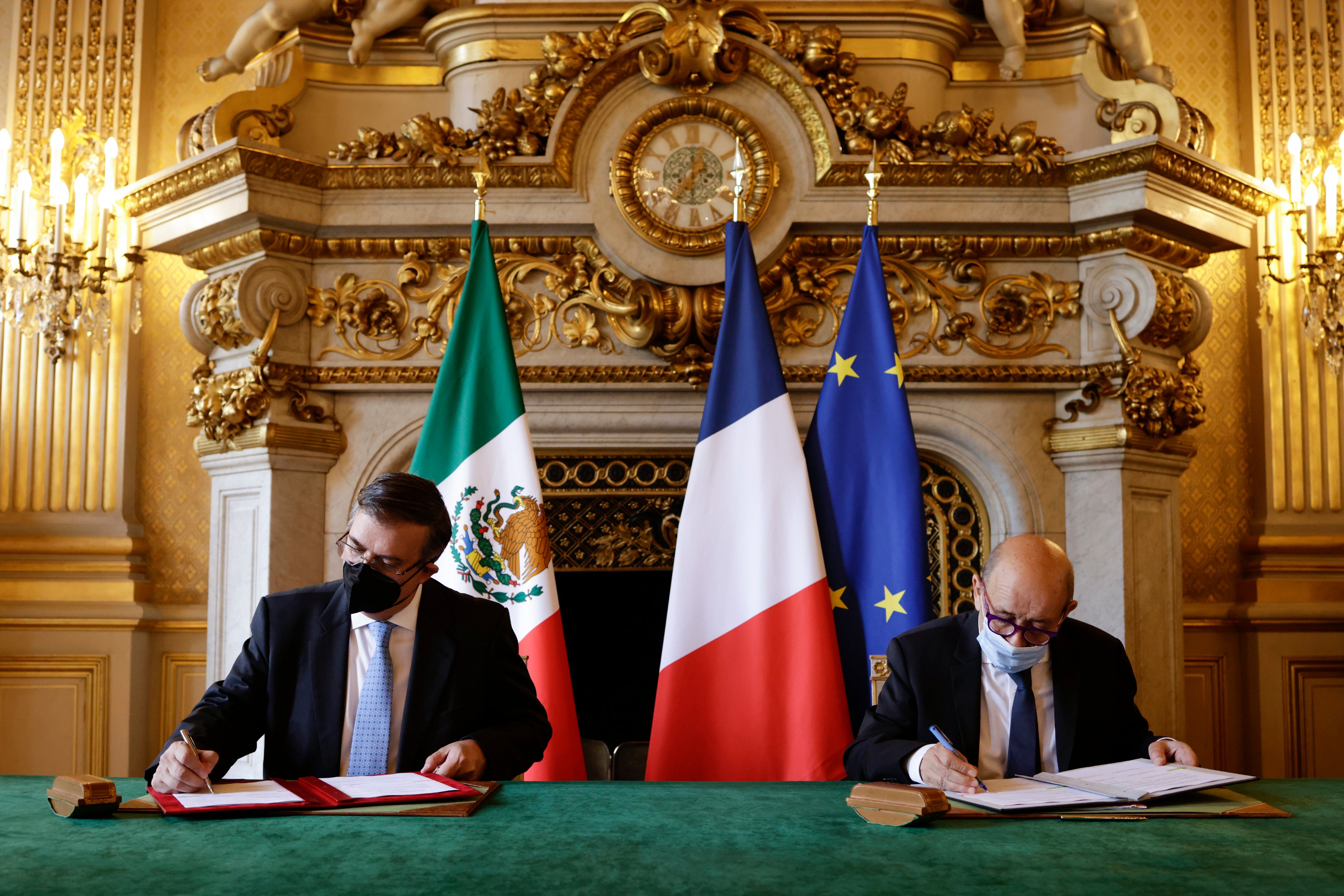France, Mexico sign deal against trafficking in artifacts
France and Mexico have signed an agreement pledging to cooperate to fight trafficking of cultural artifacts

France and Mexico signed an agreement Thursday on cooperating against the trafficking of cultural artifacts, a deal that the Mexican foreign minister called an important step toward recovering and protecting Mexico's cultural heritage.
Details of the deal weren't immediately released.
It came after Mexico lodged a complaint with the French government against a big auction of pre-Hispanic sculptures and other artifacts by Christie’s of Paris earlier this year. Paris auction houses often sell Indigenous artifacts that are already on the art market, despite protests from activists who say they should be returned to their native lands.
In signing the cooperation agreement, the French and Mexican foreign ministers acknowledged Thursday that their countries have different laws around cultural objects but promised to work together in the future to fight trafficking of artwork.
“The recuperation and protection of our cultural goods is a huge issue for us," Mexican Foreign Minister Marcelo Ebrard said. “I am happy that on this occasion France accompanies us and supports this initiative despite our legal systems being very different. We haven’t always shared the same posture, but this agreement is very positive.”
He said the agreement includes mechanisms "to impede in the maximum way possible the commercialization – which is illegal – of pieces that are important for the historical and cultural patrimony of Mexico.”
The Mexican National Institute of Anthropology and History protested the Christie’s Paris sale earlier this year. The collection included a 1,500-year-old stone mask from the ancient city of Teotihuacan, and an ancient statue of the fertility goddess Cihuateotl, apparently from the Totonac culture. The auction brought in more than $3 million.
Bookmark popover
Removed from bookmarks